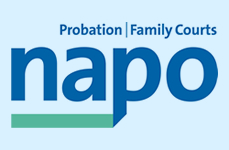Napo – the probation officers’ union and professional organisation – has finally forced the Justice Secretary to recognise the serious safety risks in the re-organised probation service, and provide details of the steps he will take to address Napo’s long-standing concerns before Community Rehabilitation Companies are sold into private ownership.
As a result, Napo has today concluded its legal action and is satisfied it has achieved everything it was possible to secure through its court case. It will ask the High Court to order the Justice Secretary to pay the legal fees it has been forced to incur to make him face up to the safety issues in the system.
Since July, Napo has presented the Justice Secretary with compelling evidence that the re-organised probation service created unacceptable risks to the safety of the public and staff. But the Justice Secretary has refused to meet personally with union officials, and has therefore refused to tell them if he even understood the problems he has created by fragmenting the probation service. After months of trying to make the Justice Secretary co-operate and respond to the safety issues, Napo brought the matter to court.
Napo told him that the new system created, amongst other dangers:
- An unprecedented and dangerous increase in the workloads of probation staff which directly affected their ability to manage offenders properly and created a serious risk to the public.
- Significant risk to staff members who, after access to ICT records was restricted, had to meet dangerous offenders with no information about their crimes or the risks they posed.
- Dangerous delays in the allocation of offenders to appropriate supervising probation officers.
In the court proceedings, Napo demanded:
(1) Disclosure of the Justice Secretary’s evidence and test results on the safety of the system;
(2) That the Justice Secretary should take account of Napo’s evidence and representations about the risks he had created;
(3) Recognition that the system was currently not operating safely and that a number of steps had to be taken before it is safe to transfer it to the private sector.
On 26 November 2014, the High Court ordered him to hand over the safety evidence and Napo made detailed representations to the Secretary of State on the outstanding safety concerns on 1 December. Documents handed over by him on the afternoon of 4 December show that he has recognised and is addressing all of the safety concerns raised by Napo.
Napo remains committed to ensuring its members and the public are protected, as far as possible, from dangerous offenders. It will closely monitor the Justice Secretary’s implementation of the amendments he says will make the system safer and will hold him to his promises. Napo will also bring private law proceedings for any of its members injured as a result of the Justice Secretary’s misguided ‘reforms’.
Ends
